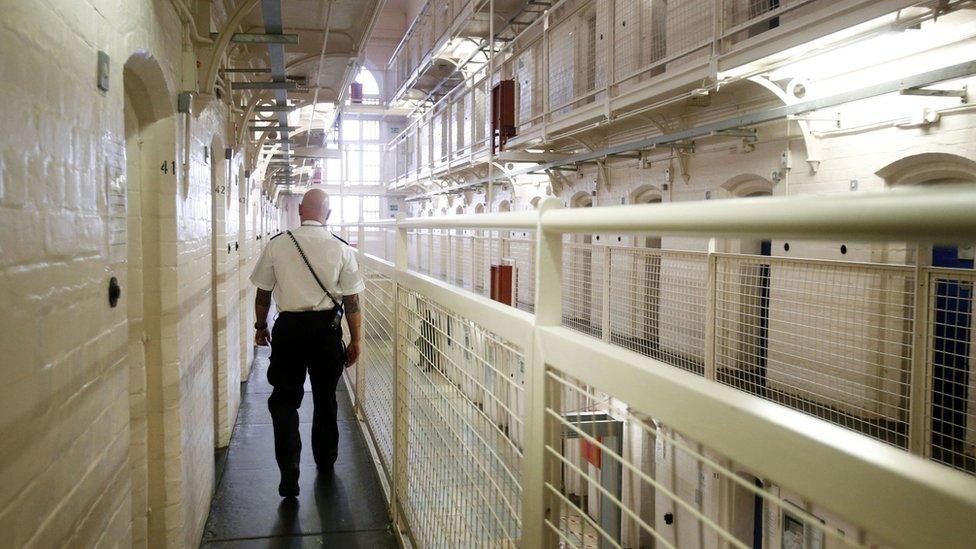Crisis-hit prisons 'risk breaching rights of inmates'
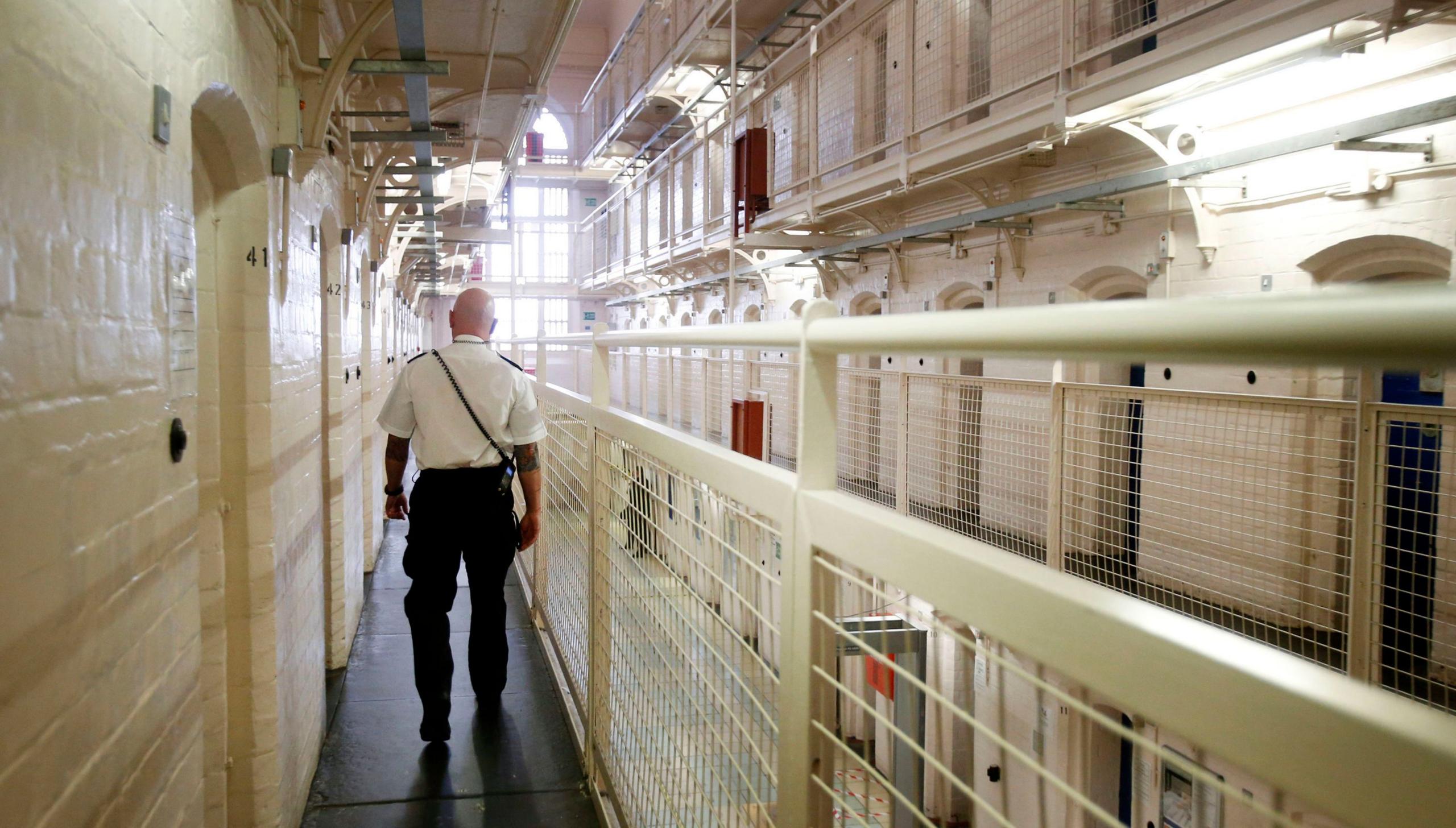
HMP Barlinnie was relied on for “surge capacity” and house 50% more inmates that it had been designed for
- Published
Scottish prisons are in crisis and risk breaching inmates' human rights, according to a new official report.
Holyrood's Public Audit Committee has called on the government to carry out an urgent review of the prison system.
It follows recent warnings from within the service about overcrowding and a crumbling estate.
About 550 prisoners are to be released at the end of June to help release pressure on Scotland's jails.
In the 46-page report, external, the auditor general said the Scottish government and prison service could face financial risk from legal challenges by prisoners as a result of the poor conditions.
The committee heard from Scottish Prison Service (SPS) chief executive Teresa Medhurst that seven prisons were "on the brink" and at "red status" because of overcrowding.
She said HMP Barlinnie, which was designed to house 987 inmates, was relied on for “surge capacity” and as of 13 November 2023 its population was 1,406.
Giving evidence for the report, the chief inspector of prisons said Barlinnie was "at risk of catastrophic failure" and although HMP Greenock was one of the best prisons and had many "wonderful" aspects, the buildings "should be bulldozed".
"The committee is extremely concerned at the continued deterioration of significant parts of the prison estate since its predecessor committee published its report in 2020," the report said.
"We ask that the Scottish government urgently sets out a clear timetable for addressing those parts of the prison estate that are no longer fit for purpose."
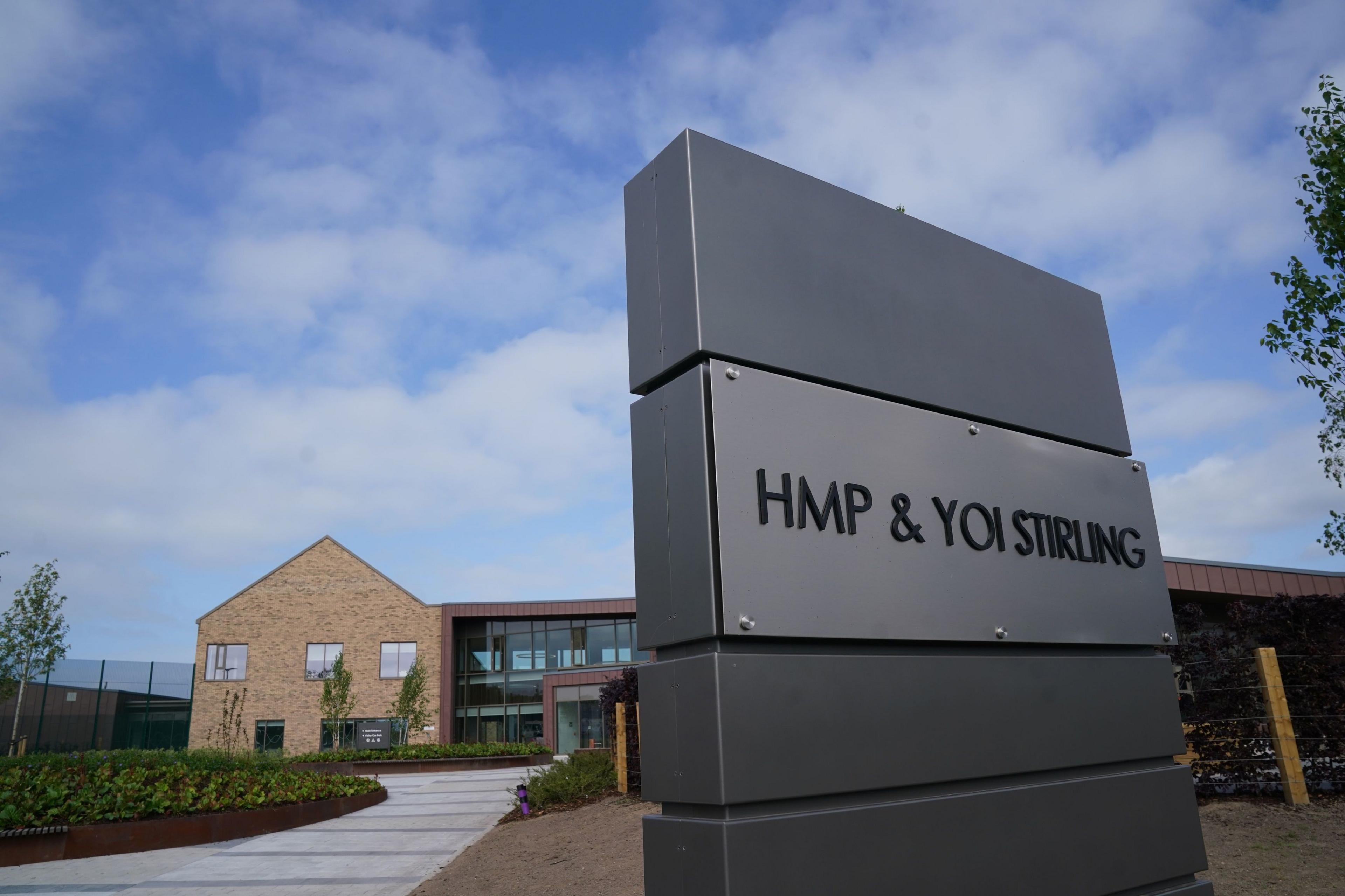
Scotland's newest prison, HMP Stirling, does not have any cells with doors wide enough for a bariatric wheelchair
It said there were concerns about how human rights issues could "present a live risk for the Scottish government and the Scottish Prison Service, as well as a future financial risk" and recommended that a review should be a carried out.
Looking at the GEOAmey prisoner transfer contract, the committee found there was no single factor responsible for recent failings - which have seen prisoners miss court appearances and medical appointments
It said "staffing issues, an increasing prison population with more complex health needs and an increased court capacity aimed at addressing court backlogs" had all contributed to the problems.
The report also raised concerns about how the prisons could meet the needs of an ageing prison population and whether "elderly and infirm prisoners who are of limited risk to society due to their deteriorating health" should remain in prison.
Among other concerns, it noted that Scotland's newest prison, HMP Stirling, does not have any cells with doors wide enough for a bariatric wheelchair, a heavy-duty type of chair used for obese inmates.
The union representing Prison Officers said they had been raising many of the issues highlighted in the report for years.
Phil Fairlie, assistant secretary of the Prison Officers Association, said they were pleased to see the "powerful report".
"Scotland’s prisons are dangerously overcrowded, understaffed and as the chief executive of the Scottish Prison Service has said, some are not fit for purpose and on the brink," he said.
"This is placing huge pressures and strains on our members and has the capacity to compromise the human rights of prisoners."
Mr Fairlie added: "In absence of a dramatic change to sentencing policy, or the purpose of prisons in this country, then what we need is sustained investment to provide additional staffing and capital investment, to ensure the prison estate can meet the needs of society."
'Sticking plaster approach'
Jim Watson, a lecturer in criminal justice at the University of the West of Scotland, said overcrowding was a long-term problem and could lead to re-offending.
Speaking to BBC Radio's Good Morning Scotland, he said: "Politicians are very good at identifying problems but the thing about the Public Audit Committee report is there was no solutions put forward."
He said this was a "sticking plaster approach" to the prison service's problems and there should be a re-think about the "fundamental reasons behind the reason why this is happening".
"It's not as strategic as it could have been - they have been very restrained in what they are proposing and it's not going to achieve a lot before they are back in the same position again," he said.
He said that Scotland could end up with a service that is "more restrictive and more coercive, and actually causes more harm to individuals going through it".
He added: "We move away from that rehabilitation that needs to be the core of what prison is about."
A spokesman for the Scottish government said it was "committed to ensuring that the human rights of the people in our prisons are respected, protected and fulfilled".
He said: "Whilst the Scottish Prison Service is managing a high and complex prison population under considerable pressure, the Scottish government and SPS work closely together to address any issues."
A spokesman for the SPS said: "We fully recognise the importance of ensuring prison infrastructure is fit for purpose and meets the rights and needs of all those who live and work in our establishments."
Related topics
- Published16 May 2024
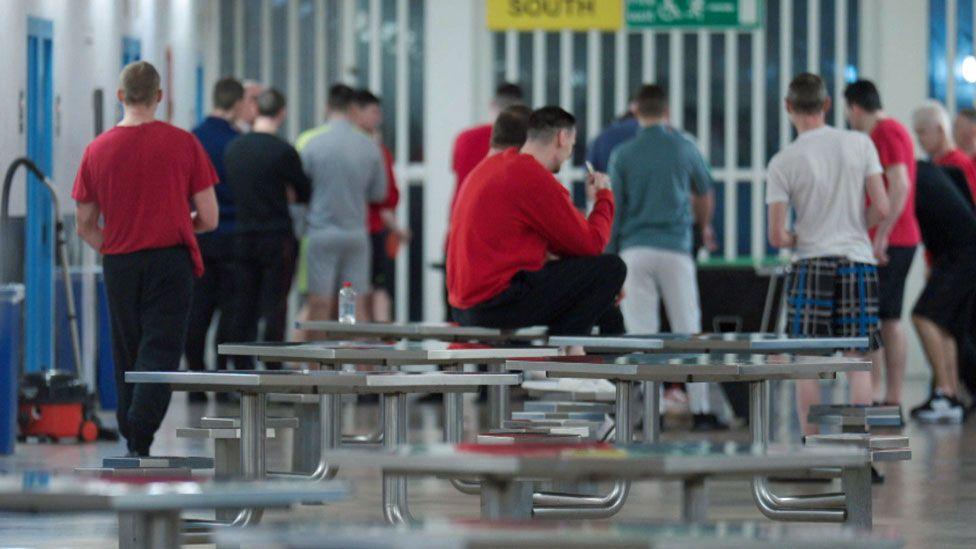
- Published5 February 2024
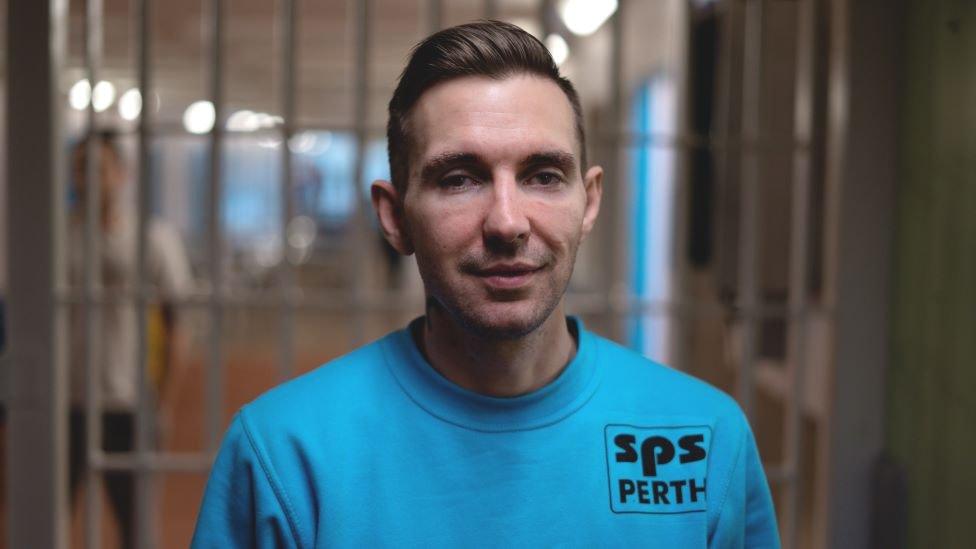
- Published4 August 2023
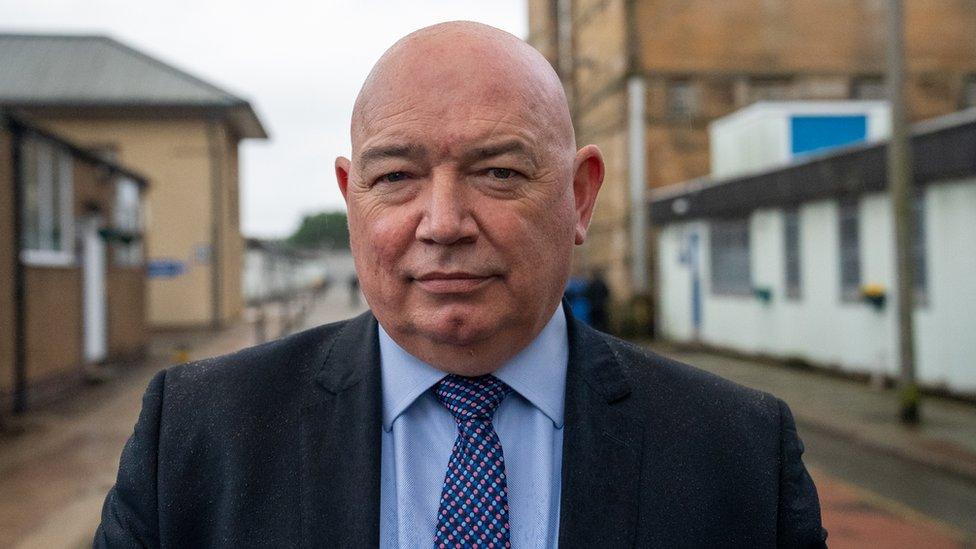
- Published4 August 2023
